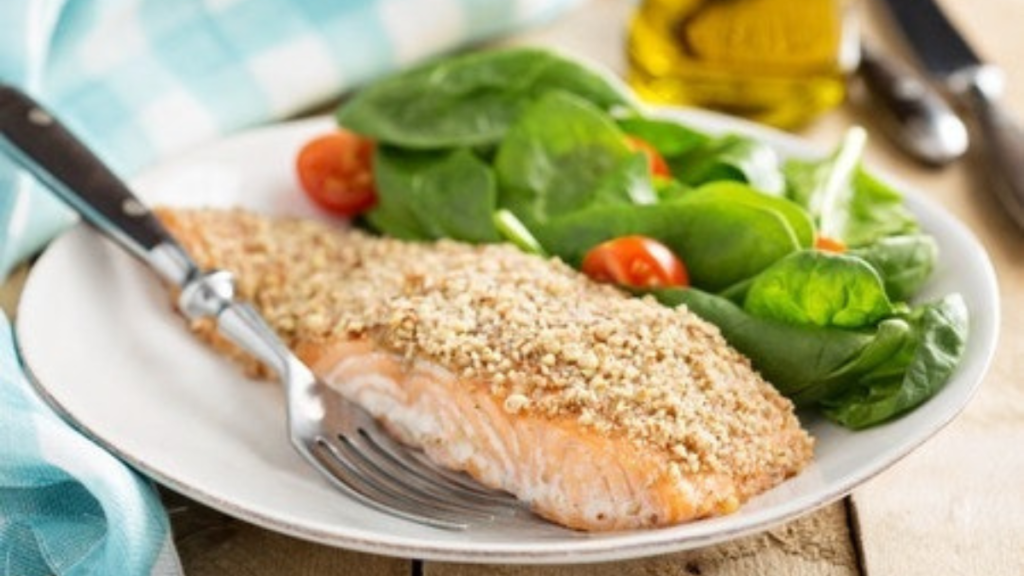
Eating a nutrient dense diet doesn’t have to be overly complicated. After applying a little knowledge and practice it can be simple and fun.
My number 1 tip is EAT REAL FOOD!!! What does this look like? Eating lots of vegetables, fruits, and clean proteins often, and in as close to their natural state as possible. An apple is a lot more nutrient dense than apple sauce you pick up in a jar from a store. A common saying is you should be eating food that either came from the earth or had a mother.
My number 2 tip is READ THE INGREDIENT LIST if you must eat a prepackaged food. Unfortunately food manufacturers sneak in lots of potentially harmful ingredients in their products which can have a negative impact on health. Look for lists that have 5 or less ingredients in them and ones you can pronounce and know what they are.
My number 3 tip is whenever possible CHOOSE ORGANIC FOODS to reduce your exposure to pesticides. Studies show eating a mostly organic diet decreases our bodies’ concentration of chemicals.
My number 4 tip is DRINK LOTS OF WATER. Hydration is essential for all body functions. After all, our body is around 60% water. Fill up a water bottle and keep it with you. If you are breastfeeding it is especially important as your body is making milk which is over 80% water.
My 5th tip is MAKE SIMPLE SWAPS. Use grass-fed butter instead of margarine, grass-fed and/or organic full fat dairy, if tolerated, instead of low fat. Olive oil instead of seed oils. Honey or maple syrup as a sugar replacement. Whole grain breads or pasta instead of white. Brown rice instead of white rice.
Snacks:
Smoothies are a quick and easy way to add some quick fuel to your diet. Be sure to include some leafy greens or an avocado. Chia or flaxseeds can add some extra fiber and omega fatty acids as well. Add some collagen or protein powder for an extra boost.
Add vanilla, fruits, a tiny bit of honey or maple syrup, chia or flaxseeds, collagen/protein powder or even some granola to some plain yogurt for a snack. If dairy is an issue, goat or sheep yogurt which is an A2 dairy can be less irritating. Unfortunately most non-dairy yogurts have a lot of additives so use with caution.
Spread nut or seed butters on sliced apples, pears, or bananas. Green bananas with tahini is my personal favorite.
Cut up veggies such as carrots, cucumbers, red or green peppers or celery and dip in hummus.
Eat hard boiled eggs or eggs of any kind. Many places have humane certified free range eggs these days. Bonus points if you have a local supplier.
Bars: Epic, Chomps, Wild Zora or Vermont sticks all have some pretty clean jerky bars or sticks to snack on.
Dried fruit bars: Eat it with some healthy fats/protein to slow the absorption as dried fruits are high in sugar. Trader Joe’s brand fruit bars, That’s It, Wild Made, or Bear fruit rolls are some of my favs.
Nuts & seeds. Go Raw has some yummy sprouted seed bars.
Overnight oats: add fruit, raisins and/or seeds to amp up nutrient content.
Quick tips:
Grass-fed collagen power is a super simple way to potentially help your tissues recover from birth. This powder is flavorless and dissolves easily. It can be added to almost anything.
Bone broth is also high in collagen. It can be warmed up and sipped on or used as a base for soups.
Precut fruits and veggies, while a little more expensive, can be a real time saver. Frozen fruits and veggies can be helpful as well.
If you haven’t had your baby yet, I would consider freezing some meals ahead of time.
This is a BIG ONE! When someone asks if you need anything, don’t be afraid to ask for a meal, a bag of groceries, or even some snacks. Utilize those resources. The people that love you want to help and you are worthy of their support.
Crock pot meals or soups. Simple and easy to digest. Figure out what you’re making and just dump the items in and slow cook it. It’s helpful to have a list of easy meals on hand so you don’t have to overthink it with your tired brain. Try and sneak some extra veggies in whenever you can.
This one may not seem as logical but hire a postpartum doula. They support you and often do light housework or cooking.
Consider using a meal delivery service. Often they have healthy options with a variety of dietary considerations. All the ingredients come to your door and you just have to put them together and cook it. By you, I mean any person in the home who can cook.
I found Lilly Nichols RD book Real Food For Pregnancy especially helpful in supporting pregnancy and postpartum nutrition.
Your health is important and a worthy cause to invest energy towards. The steps you take don’t need to be overly complicated and can be introduced over time. Many individuals underestimate how helpful eating real food is for an overall feeling of wellbeing. It can improve sleep, aid in postpartum recovery, help energy levels, and ward off chronic diseases. Plus, research is now indicating diet can influence nutritional components of breastmilk.
© 2023 All rights reserved Baby & Toddler - part of parent promotions